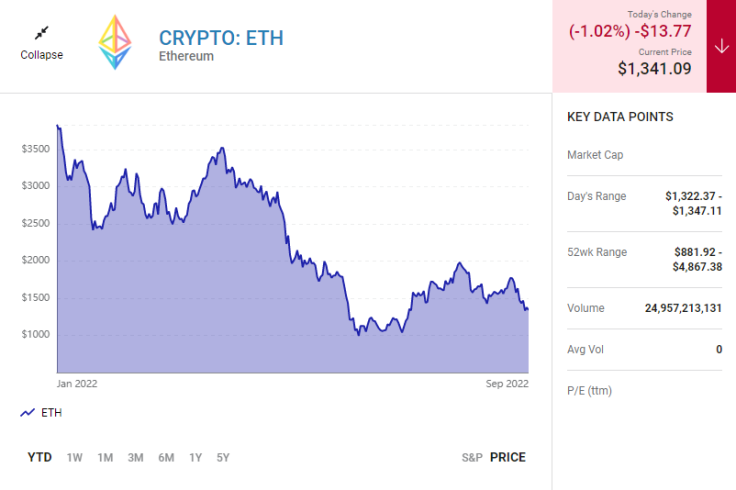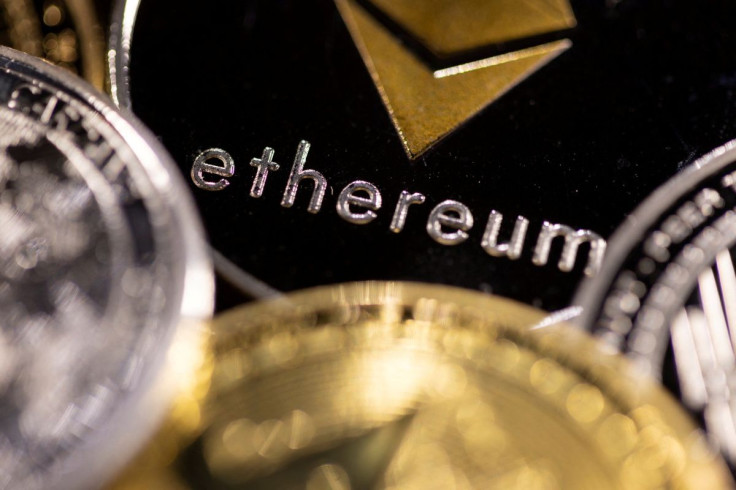With Ethereum's 'Merge' Now Complete, Another Huge Network Upgrade Is Coming In 2023
KEY POINTS
- The Merge has made the Ethereum blockchain much more energy-efficient, and could reduce the supply of Ether over time
- There is still much work to do to make Ethereum more scalable
- An upgrade planned for 2023 will attempt to enable Ethereum to process more transactions per second
Last week, the second-largest cryptocurrency by market value, Ethereum (ETH -1.02%), achieved a huge milestone. Developers finished The Merge, a much-anticipated change in how the network is governed, how transactions are approved, and how new blocks are formed. The Merge has been in the works for years, and while it was an important achievement, the Ethereum community still has more work to do if it wants to further scale the blockchain. In fact, another major upgrade could occur in 2023. Here's what investors should be on the lookout for.
What The Merge accomplished
The main thing The Merge accomplished was transitioning Ethereum from a proof-of-work governing mechanism to a proof-of-stake mechanism.
Proof of work was the original way that blockchain networks were run, and it's still used by the pioneer blockchain Bitcoin, the biggest crypto by market value. Under those types of mechanisms, mining rigs -- at this point, usually arrays of specially designed computers -- attempt to solve cryptographic puzzles as fast as possible in order to get the opportunity to validate the transactions coming through the network and add new blocks to the blockchain.
In return, these miners are awarded tokens. As the prices of tokens have gone up, especially among the largest cryptocurrencies, the competition to solve these cryptographic puzzles has intensified, requiring miners to use tons of computing power and hardware to solve them. That makes proof-of-work protocols extremely energy intensive, and therefore bad for the environment.
Under a proof-of-stake protocol, investors who own tokens can "stake" them -- in essence, locking them up for a while in a way that allows them to be lent out to others. Doing that enters the token owners into a lottery-like system for the chance to validate transactions and form new blocks. For their contributions, those who stake their tokens on the network will receive some amount of Ethereum based on a sliding-scale formula.
The move to proof of stake not only makes Ethereum a lot more energy efficient, it will also shrink the amount of Ether given to validators per block, which will effectively slow the growth of the Ether's supply -- and potentially contribute to its decline over time. This may eventually drive its price higher.
The next big step
While completing The Merge was a critical step in improving the network, it didn't solve another big problem that has plagued Ethereum users for a while now: high transaction fees, also known as "gas fees." Ethereum has gotten a lot of use in recent years, which has clogged the network and led to very high gas fees, making the network less appealing and accessible for the common user.
With The Merge behind them, developers can now turn their attention to an upgrade called sharding, which essentially will break the Ethereum network down into smaller pieces and allow it to handle more data, ideally making it easier and faster to get transactions approved, and thus reduce congestion.

Sharding is expected to maintain the decentralization component of Ethereum because it will enable people to access the network from their personal laptops or phones. This makes the network more accessible and could lead to more users participating in it. The more users on the network, the more decentralized and secure Ethereum becomes, which makes it harder to attack.
Sharding will also add extra data to the network and will pair with other technology called "layer 2 rollups," which will enable decentralized applications on Ethereum to bundle transactions and use data more efficiently. If sharding works, this could allow Ethereum to process as many as 100,000 transactions per second in comparison to the less than 20 transactions per second it can process now.
What to look for in 2023
It's hard to know when exactly sharding will happen or if it will be completed in 2023. It's going to be done in two different phases, and Ethereum's website lists it as a 2023-2024 event on some pages.
Additionally, it seems like some aspects of how to implement sharding are still being debated among developers, so I'd expect some delays. While it can be tough to be patient, for the long-term sustainability and success of Ethereum, it's important that the developers get these upgrades right.
Investors should also take a breath and give credit to the developers for just completing The Merge. It was not an easy undertaking, and it's a testament to just how capable the developers are. That gives me faith that sharding will be done correctly and in as timely a manner as possible.
This article originally appeared in The Motley Fool.
Bram Berkowitz has positions in Bitcoin and Ethereum. The Motley Fool has positions in and recommends Bitcoin and Ethereum. The Motley Fool has a disclosure policy.



















